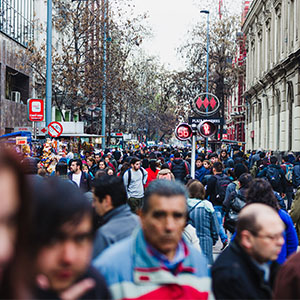The fight against corruption should not be confused with Operação Lava Jato (Operation Car Wash, in Portuguese). Due to its hits and misses, it received an emotional response from the Brazilian people and mobilized huge political interests. Its misses, such as showcasing spectacular punitive operations, now take a toll in credibility while part of the political class seizes the opportunity to promote setbacks. The challenge now is to avoid further setbacks and to move forward to systematically combat corruption.
In order to achieve this goal, it is essential to strengthen the institutional design of the government bodies involved in the fight against corruption (and the system as a whole as well), avoid setbacks in legislation and case law, invest in preventive actions, and improve the political party system.
Those were the main takeaways of the webinar “Are we Watching the end of Operation Lava Jato? What does this mean for the fight against corruption in Brazil?” with Judge Herman Benjamin (member of the Superior Tribunal de Justiça), Electoral Circuit Prosecutor Silvana Batini, and professor Rubens Glezer (Getulio Vargas Foundation Law School of São Paulo).
“The fight against corruption is neutral: it has no ideology or party."
Silvana Batini, Electoral Circuit Prosecutor, was part of the Operation Car Wash team in Rio de Janeiro.
“The role of major punitive operations tends to hinder the fight against corruption in the medium-term if it is not structured to prevent crime."
Rubens Eduardo Glezer, professor at FGV Direito SP, coordinates the Supremo em Pauta project.
“Car Wash is a police and judicial branch criminal operation. But the fight against corruption is holistic; it involves civil, administrative, institutional, political, and cultural aspects.”
Herman Benjamin, Superior Court Justice (Superior Tribunal de Justiça).
Morte morrida ou morte matada? (Portuguese for “Death from natural causes or homicide?”)
At the opening of her speech, Silvana Batini spoke of João Cabral de Melo Neto, author of the famous poem Morte e Vida Severina (Death and Life of a Severino). “To paraphrase the poet from Pernambuco, can we ask ourselves if Lava Jato is dying of ‘natural causes' or of a ‘homicide'? The operation would be far from a death from natural causes, as there is much yet to be done. The risk of a homicide is much greater because many are interested in putting Operation Car Wash to an end.”
According to the Electoral Circuit Prosecutor, it is not possible to kill Operation Car Wash with a single bullet or one, single ambush. “The operation has suffered and will suffer several ambushes, but it lives on. We are, however, in a new moment when its legacy needs to be reinforced,” she stated.
According to the former member of the Car Wash team in Rio de Janeiro, Operação Lava Jato “did not fall from the sky nor was it invented by a group of federal prosecutors and judges in Curitiba (in 2014), but resulted from a historical process of improvement and maturity of the system that fights corruption in Brazil.”
Its main legacy, explained the professor at Getulio Vargas Foundation Law School of Rio de Janeiro, is a new model of action, with investigations based on plea bargains, intense use of technology to obtain and cross-check information, horizontal coordination between various federal institutions, and intense collaboration with other countries’ corruption-combating agencies.
The Brazilian Federal Prosecution Office's work enabled strategic advances to be made by using widespread provisional measures, such as pretrial detention and freezing assets, as well as the recovery of assets on a scale never seen before. For Batini, the Federal Prosecution Office must "institutionalize" such advances through an open and frank debate.
“The inexorable conclusion is that fighting corruption requires exclusively dedicated attorneys with specific training. It is not a job that can be done by one person, as used to be the case. Hence, the importance of task forces or multidisciplinary teams. Keep in mind that on the other side (defending the suspects or defendants) are the best lawyers in the country,” she continued.
The speaker concluded by mentioning and paraphrasing Rodrigo Janot, then-attorney-general of Brazil, who, in 2017 said: “As long as there is bamboo, there will be arrows.” “There is a lot of bamboo and a lot of arrows, but it is essential to have archers who are trained, grouped, motivated, and united," said Batini.
Lessons not learned
Operation Car Wash represented a crucial inflection in the Brazilian social perception of impunity by showing that important politicians and business people could indeed be punished. But little has been done since then to combat and, primarily, to structurally prevent corruption.
“In 2004, judge Sergio Moro himself wrote an article called Considerations on Operation Mani Politi (Clean Hands, in Italian). In the article, he talked about the need to mimic that operation in Brazil and mobilize public opinion as a spearhead to be able to carry out structural reform without which the fight against corruption would be destined for failure,” said Rubens Glezer, coordinator of the Supremo em Pauta Project (FGV).
The professor at the São Paulo School of Law also spoke of a seminar that FGV held in 2016 with American economist Susan Ackerman, known for her studies on corruption in relations between governments and companies. “At the time, Professor Ackerman (Yale University) told then-Attorney General Rodrigo Janot, who was in attendance, that if their preventative system was not reformed, the progress made in fighting corruption in Brazil would go down the drain. Unfortunately, the lesson was never learned,” said Glezer. (Read more about her presentation at Dialogue with Susan Ackerman: How to discourage corruption, in Portuguese.)
Glezer cited government bidding as an example of a failed reform. “There has been no significant change in this system since 2014, and that is one of the primary sources of corruption in the country. Little has been done to eliminate incentives for corruption and shift the cost-benefit ratio of these acts.”
"Instead of public opinion putting pressure on Representatives and Senators to address corruption issues, the prevailing discourse is that it is better to forget about Congress, as it has no solutions," he said.
Operation Car Wash represented a crucial inflection in the Brazilian social perception of impunity by showing that important politicians and business people could indeed be punished. “When there is a short at home, we have two options: solve the structural problem or let the house burn down. We are precisely in this moment, right now. Are we going to let it burn down without doing anything?” He asked.
For Glezer, society is tired of the anti-corruption agenda, which opens the flank for a counterattack by the political world, which wants to protect itself. "Today, I see a real risk of the Federal Police losing its autonomy and of the Federal Prosecution Office being demobilized," he concluded.
Fighting corruption is an international obligation
"I do not like to deal with the fundamental fight against corruption in the light of Operation Car Wash because that takes us to retail of things, even if it is a 'mega retail'," said Superior Court Justice Herman Benjamin, at the beginning of his speech. “When we talk about Lava Jato, faces, personal suffering, and scenes of justice or injustice come to mind. However, the fight against corruption is a much broader topic with several aspects, and it concerns all Brazilians,” he said.
“Car Wash became a brand and was appropriated by sectors that do not represent the range of institutions and people that genuinely care about the fight against corruption. We run the risk of falling into the arms of all kinds of passions, which undermines common sense and prevents us from acting rationally,” he continued.
According to the Justice, Brazil also cannot exempt itself from the fight against corruption because it is a signatory to international commitments on transparency and correction in public and private affairs. “Corruption today is an international concern, as is human rights, the environment, and intellectual property, among other global issues. There is no way of escaping them,” he said.
Benjamin strongly criticized the possibility that Congress would approve changes to the Malfeasance and Misconduct in Office Act (Lei de Improbidade Administrativa), under discussion in the Brazilian House of Representatives. “This law from 1992 is consolidated and its interpretation is settled in the court system of the whole country. No law is perfect and immutable, but it would be absurd to change it without broad public debate,” he said.
The Judge also relates that Brazil needs to advance in the fight against corruption "without individualism and exhibitionism, but with rationality, constitutional guarantees, and justice." "There is no Republic, rule of law, or social justice if we don't win this fight for the better," he concluded.
Political-electoral reform
The three speakers agreed that reforming the political and party systems is fundamental to the fight against corruption. “The fragility of the political party structure is the mother of corruption. The robust Electoral Fund, which is public money, is often intended not for party presidents, but for party owners, who do what they want with it,” said Benjamin, former chief inspector of the Superior Electoral Court between 2016 and 2017.
“The electoral financing system was modified via the Federal Supreme Court, but barely. There was no systematic dimension to that change, which needs to be made by the Brazilian Congress in the context of a broad political reform,” said Rubens Glezer.
“To create an environment of more ethics and loyalty that the fight against corruption requires, it is essential to think about Electoral Law. I don't believe in magical solutions like cheapening campaigns or adopting district voting and closed lists without further evaluation,” said Silvana Batini.
According to the prosecutor, Brazilian parties lack transparency. “In general, they are opaque environments, where there are irregularities, and it is very difficult to perform an audit. They need to open up and create rules for compliance. When dealing with public funds, they must be active collaborators in the fight against corruption,” he concluded.
Otávio Dias is a journalist specializing in politics and international affairs. A former correspondent for Folha in London and editor of the estadao.com.br website, he is currently the content editor at Fundação FHC.
Portuguese to English translation by Melissa Harkin & Todd Harkin (Harkin Translations).











